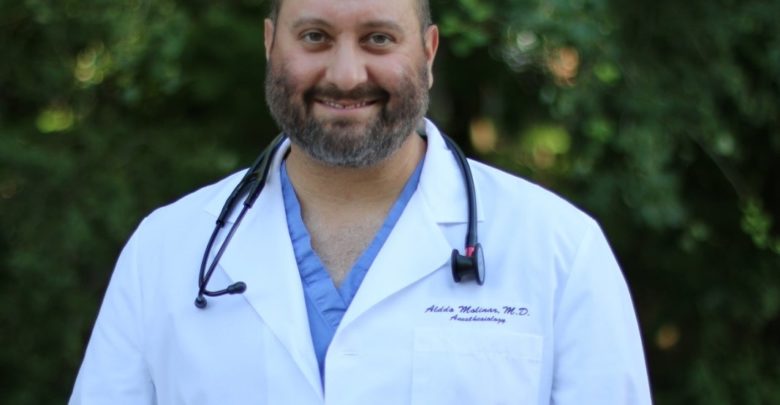Dr. Alddo Molinar on Technology, Education, and Emerging Medical Trends

If you’re interested in training to become a physician, it can be helpful to look to information from well-respected practitioners in the field of medicine. By seeing what these individuals consider to be some of the most important aspects of their practice, you can better prepare yourself for a career at the forefront of this work. In that spirit, we’re turning to information from Dr. Alddo Molinar, an anesthesiologist who’s been consistently singled out by his peers for the quality of his medical care. Read on for a look at his thoughts on where the medical field is heading and how doctors can thrive in their work.
The power of technology
The medical field as a whole has long benefited from advances in technology. Work to improve medical technology has been at the forefront of some of the most high-profile breakthroughs in medical science. This has included our ability to treat illness with new and innovative techniques and it’s also included a greater understanding of the science that underlies why we become ill in the first place. This may not be what you think of when you first hear the word technology, but scientific technologies to further our understanding of medical science are some of the top contributors to our ability to understand and treat illness.
Dr. Alddo Molinar has touched on this topic during past comments on how he views the evolution of the medical field.
“Medicine is a fascinating field,” notes the doctor. “In some ways, it doesn’t change much; in others, it is ever-changing. If you look at something like pneumonia, or an infection of the lungs, you would initially think it has been around forever. However, the causes of lung infection are varied, and the ways of treating this are many. The specific bacteria, virus, or fungus causing pneumonia makes a tremendous difference in how you manage this. You also have to support the body while giving it the best chances of succeeding in overcoming the infection. Things like the best type of programming for the ventilator, the best nutrition, the best sedation become essential.”
These comments cut to the core of the effects that scientific progress, in part through increased access to technology, can have on the practice of medicine. As the science behind treatment methodologies improves, so too do the methodologies themselves. In this way, general advancements to technology in seemingly unrelated fields can have a profound impact on the manner in which medicine is practiced.
Medical advancement
Of course, the role of technology in medicine can be much more direct than through the effect it can broadly have on the field of science. Medical technologies themselves have improved dramatically over the years. These advancements come in many forms, such as the creation of new drugs, the programming of new digital processes, or the creation of new machinery to support medical efforts.
In the field of anesthesiology, one way this has manifested is through the implementation of innovative new integrated units to monitor patient vitals. A critical part of the practice of anesthesiology is monitoring these vitals to ensure patients are responding well to anesthesia. However, monitoring vitals in the past has sometimes been a difficult process whereby a doctor has had to keep track of multiple different pieces of technology and make split-second decisions should a vital sign move out of the normal range. Now, with the use of integrating monitoring devices, doctors are able to streamline this process and view all vitals in a centralized location. These technologies can even assist doctors by presenting possible courses of action in reaction to a change in vital signs.
Role of education
All the technology in the world likely isn’t going to be of much use without the education to use it properly. That’s one of the reasons the field of medicine is known for its lengthy formal education, with doctors often attending medical school and then training in a residency and a fellowship to round out their knowledge in their field. However, even this preparatory education is not the end of the path for effective doctors. Continuing education is a key part of staying up to date with technological advancement and it’s been a focus of the work of Dr. Alddo Molinar in his own career.
“The most important advice I can give anyone interested in pursuing medicine is to continue to learn,” says the doctor. “I strongly suggest one hour of professional learning each day. Sometimes you have to do more, but the emphasis is on small aliquots over long periods of time. It should be such that you have covered everything in your respective specialties’ textbook at least every few years. Conversely, you should not encounter anything in clinical practice that you haven’t reviewed in a structured formal manner within the past few years. Medicine is very much a journey.”
Putting it all together
It’s perhaps clear at this point that a career in medicine often requires a commitment to personal growth and evolution throughout one’s professional life. Technology is constantly changing, scientific research is uncovering new ways of treating illness, and our understanding of various diseases is often being reevaluated. In order to keep up, a modern doctor must be able to stay abreast of all of these trends simultaneously. Doing so can require a delicate balance of education, experience, and commitment to improving one’s practice. This balance can be what sets apart some of the highest performers in the medical field from peers that are less effective in their work.
If you’re interested in pursuing a career in medicine, understanding that difference between high-performing doctors and others can be an important point of study. In addition to your formal training in medicine, it can be beneficial to intentionally set an overall approach to how you want to engage in your professional life. As we’ve seen from the above information from Dr. Alddo Molinar, some of the most successful approaches in this space involve a healthy appreciation for the power of technology and a commitment to continual learning throughout your career. Consider questioning whether or not that seems like a path you’d be interested in pursuing. Your answer could indicate whether or not a career in medicine could be right for you.



